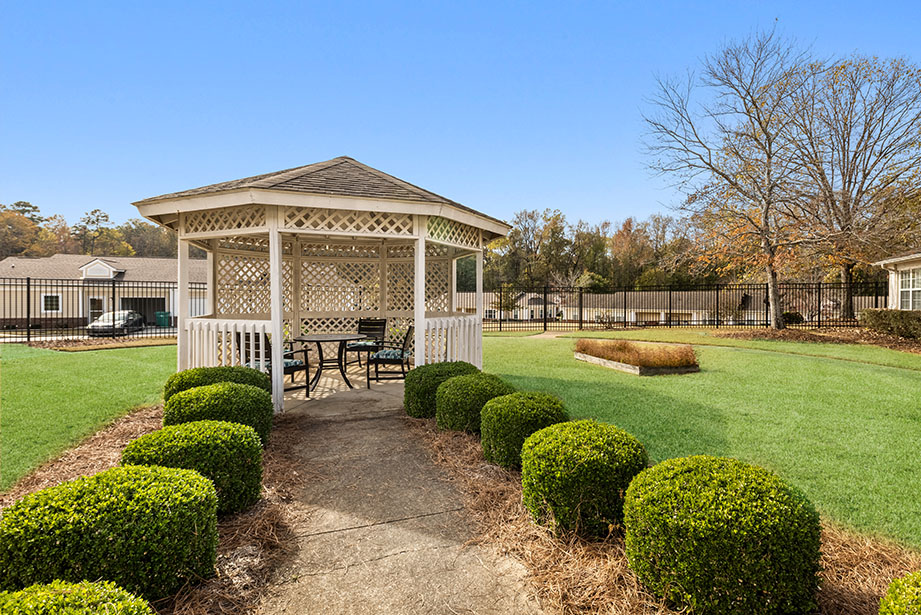Dementia is a prevalent condition among seniors—and like any other disease—a person can benefit from an early and accurate diagnosis. One tool healthcare professionals and caregivers have is the FAST scale—a comprehensive dementia assessment tool that helps caregivers tailor their care to a senior’s changing needs.
For example, a professional caregiver in a senior community can use the FAST scale when helping residents. Based on the assessment, they can communicate their findings with the seniors, their families, and healthcare providers. Regularly assessing a senior who is showing signs of dementia can help determine when a transition to memory care may be the best next step.
Understanding the FAST Scale
The FAST scale is a comprehensive tool designed to assess the progression of dementia. Its primary focus is on functional decline, detailing how cognitive impairments manifest in everyday activities. By highlighting these aspects, the FAST scale becomes an essential resource for caregivers, enabling them to tailor care strategies to fit the evolving needs of people with dementia.
The 7 Stages of the FAST Scale
The fast scale has 7 distinct stages. One thing worth noting is that stages 6 and 7 each have several progressions within them.
Stage 1: No Cognitive Decline
Stage 1 is normal aging. Seniors retain their normal cognitive function, are independent in all activities, and have no noticeable memory problems affecting their daily lives.
Stage 2: Very Mild Cognitive Decline
During stage 2, there may be some mild cognitive impairment. Seniors may experience some forgetfulness that they may or may not notice. Most people are still fully independent during this stage.
Stage 3: Mild Cognitive Decline
Cognitive decline becomes more noticeable during stage 3 on the FAST scale. Coworkers and friends may notice the changes at this point, and traveling or exploring new places can become challenging. But a senior is still typically independent during this stage.
Stage 4: Mild Dementia
Stage 4 is the first stage on the FAST scale that labels cognitive decline as mild dementia. A senior begins experiencing difficulties with complex tasks, including paying bills, handling personal finances, cooking, or traveling. Many seniors begin requiring some assistance with daily living at this point.
Stage 5: Moderate Dementia
A senior with moderate dementia may experience significant gaps in memory and thinking or difficulties recalling essential personal details. Even choosing appropriate clothing may become challenging during this stage.
Stage 6: Moderately Severe Dementia
There are 5 progressions of decline during stage 6 on the FAST scale. Getting dressed, bathing, or using the bathroom all become increasingly difficult. Most seniors require round-the-clock care at this point to ensure their needs are met.
Stage 7: Severe Dementia
Stage 7 of the scale has 6 progressions of cognitive decline. This stage starts with a severe loss of verbal abilities and profound memory deficits. This stage ends with many seniors struggling to smile and dependent on caregivers in all aspects of their lives.
How to Use the FAST Scale
A few things to consider when using the FAST scale include:
- Observe and document: Spend time with the senior, observing behavior and their ability to perform daily tasks—note any changes
- Assign a stage: Match observed behaviors and symptoms with the corresponding stage on the FAST scale
- Regular assessments: Schedule regular assessments to monitor any changes in the senior’s condition
- Record keeping: Maintain detailed records of assessments to track progression over time
Importance of Regular Assessments
Dementia is a progressive condition, meaning it worsens over time. But there is no set pace it progresses at because each person is unique. So, regularly assessing dementia progression using the FAST Scale is crucial and offers several benefits:
- Early intervention enables timely adjustments to care plans, including treatments or medications
- Better outcomes through proactive management of health conditions and symptoms—proactive versus reactive planning
- Provides informed decisions about long-term care needs and planning
Communicating FAST Scale Scores
Conversations around dementia can be a sensitive topic for many people. So, it’s essential to approach sharing FAST Scale scores with seniors and their families with empathy and clarity. Some tips for doing this include:
- Use simple language and avoid medical jargon to ensure understanding
- Provide reassurance and focus on how the information will improve care and quality of life for the senior
- Allow time for families to ask questions and express concerns
Benefits of Senior Community Life
The FAST Scale is a valuable tool for personalized care for people with dementia. By offering a structured approach to understanding dementia progression, it empowers caregivers and healthcare professionals to deliver compassionate and effective care.
Remember, caring for someone with dementia is a shared journey. And if you’re caring for a loved one by yourself, including other people who can support you and your loved one is essential. Contact our team at Summer Village Senior Living to book a community tour. We’d love to show you how our caregivers can provide an inclusive environment to preserve your loved one’s dignity and autonomy throughout the various stages of life.









